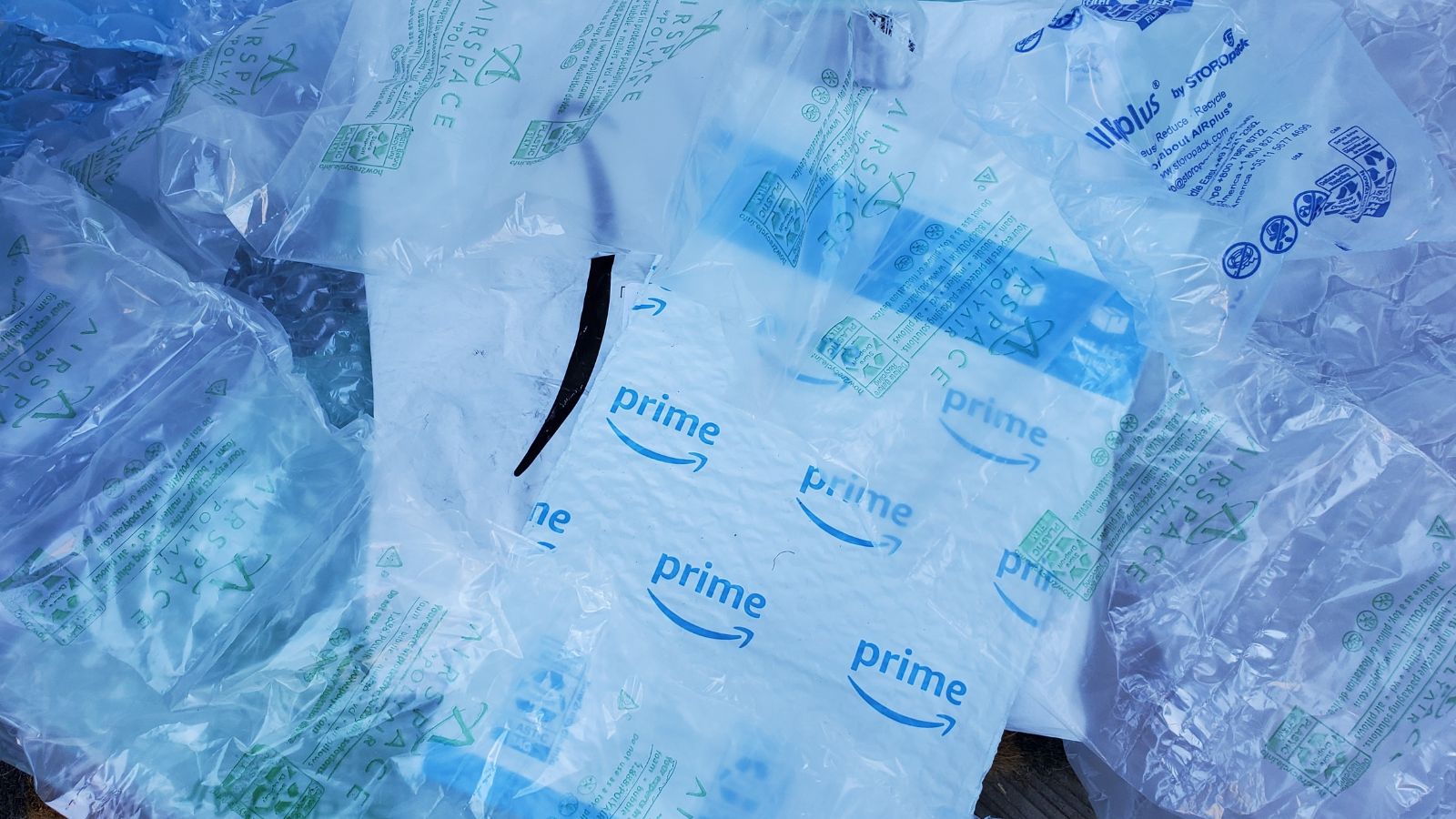This Thanksgiving, dinner came with a side of plastic waste
Holiday food --like all of our groceries-- often comes wrapped in unnecessary plastic.
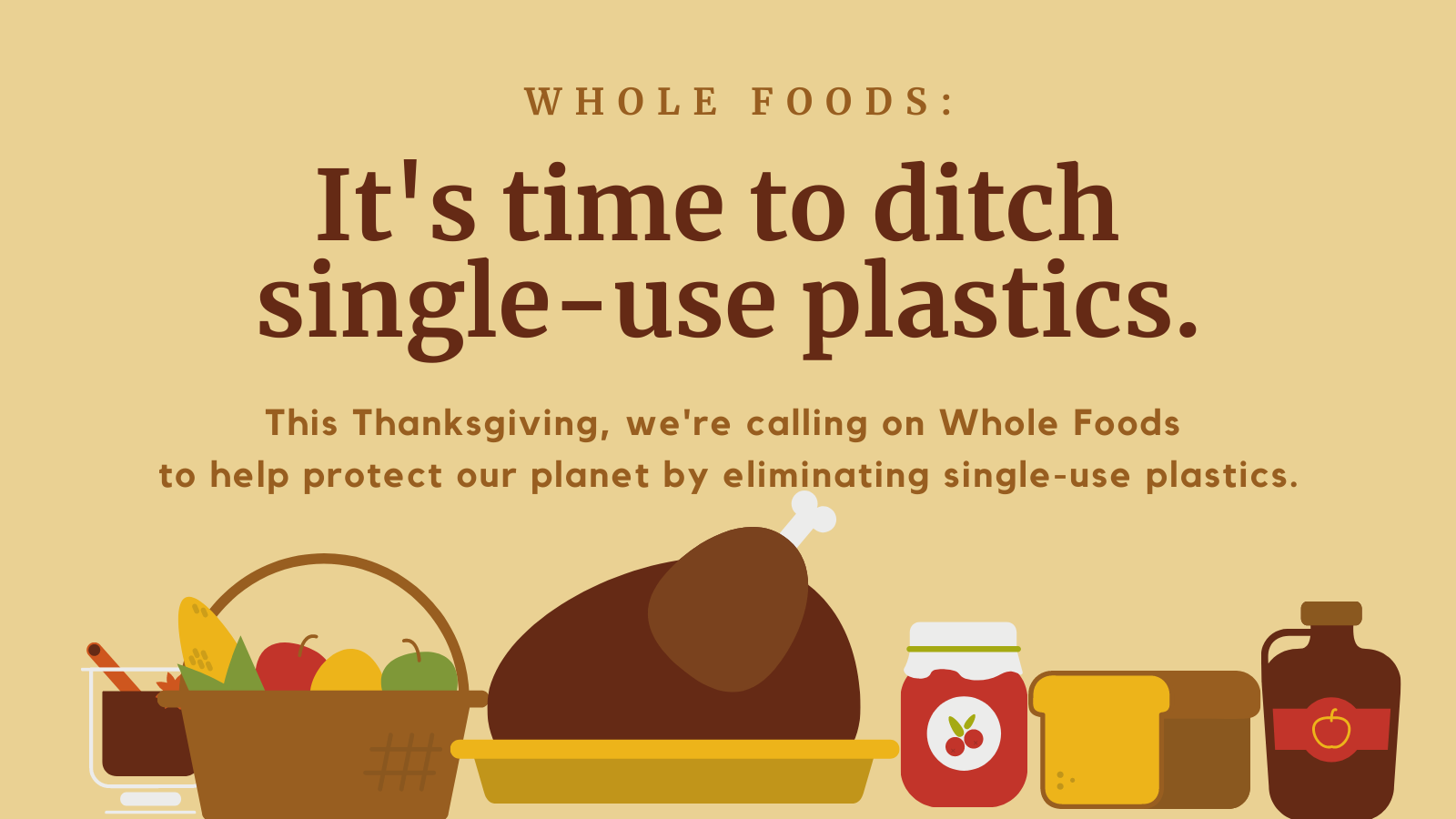
When you think about Thanksgiving and the rest of the holiday season, the first thing that probably comes to mind is the sweet smell and yummy taste of classic holiday dishes like pumpkin pie and mashed potatoes. But for many Americans, Thanksgiving dinner this year also came with something not so appealing: a side of plastic waste.
Holiday food –like all of our groceries– often comes wrapped in unnecessary plastic. A lot of this plastic is truly “single use” because it was never designed for reuse.
This single-use plastic packaging ends up polluting our oceans and harming wildlife that mistake plastic for food. It’s a common occurrence: strolling through grocery aisles and only finding the ingredients on your list wrapped in plastic film or packaged in plastic bags. It’s not a great feeling as a consumer to feel cornered into buying plastic packaging when there’s no other option available.
The overuse of single-use plastic packaging — a problem perpetuated by corporations and grocery stores — is a major contributor to plastic pollution in our environment. A common misconception is that recycling will solve our plastic problem, but only 8.7% of plastic waste generated is ever actually recycled. A garbage truck worth of plastic enters our oceans every minute, and once there, it injures and kills birds and ocean life like sea turtles.
To turn the tide on plastic pollution, we need corporations to do their part to eliminate single-use plastic packaging. In particular, grocery stores have a major role to play: They package our groceries in disposable plastic including bags, foam containers, wrappers, and packaging every day. We need to stop the problem at its source.
As far as grocery stores go, Whole Foods has been a leader in the past on sustainability.In 2008, they became the first grocer to ban the use of plastic bags at check out. But recently, the company has started to lag behind competitors when it comes to plastic. Whole Foods received an ‘F’ from As You Sow for failing to have a comprehensive plan to tackle plastic.
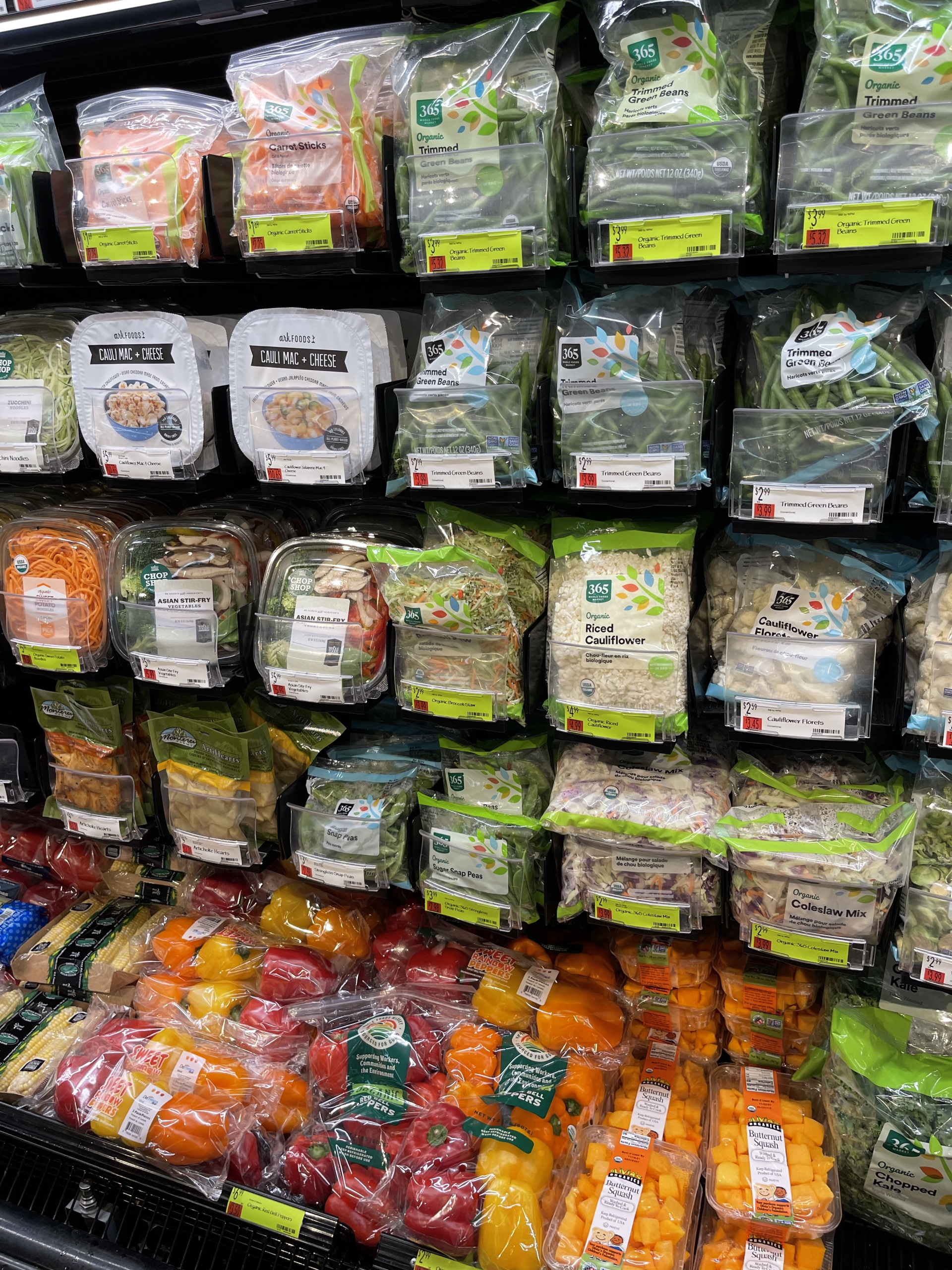
That’s why this holiday season — when most people are spending a lot of extra time in their grocery stores — we highlighted the voices of Whole Foods consumers who’ve experienced firsthand just how hard it is to buy holiday grocery staples without heaps of plastic waste.
From Nov. 22 to Nov. 26, we held a week of action calling on Whole Foods to ditch plastic on social media and through customer service calls.
The result was hundreds of creative social media posts, personalized comments, and passionate calls to Whole Foods. Participants included plastics activists, local and national environmental organizations, student groups and universities and concerned citizens from across the country. They all had the same message: Consumers want to see Whole Foods eliminate plastics, and fast.
One participant in our week of action said: “All of us need to take action to help preserve our beautiful Earth….Ridding ourselves of plastic and asking the retailers that we buy from to do so, as well, is a big step in the right direction”.
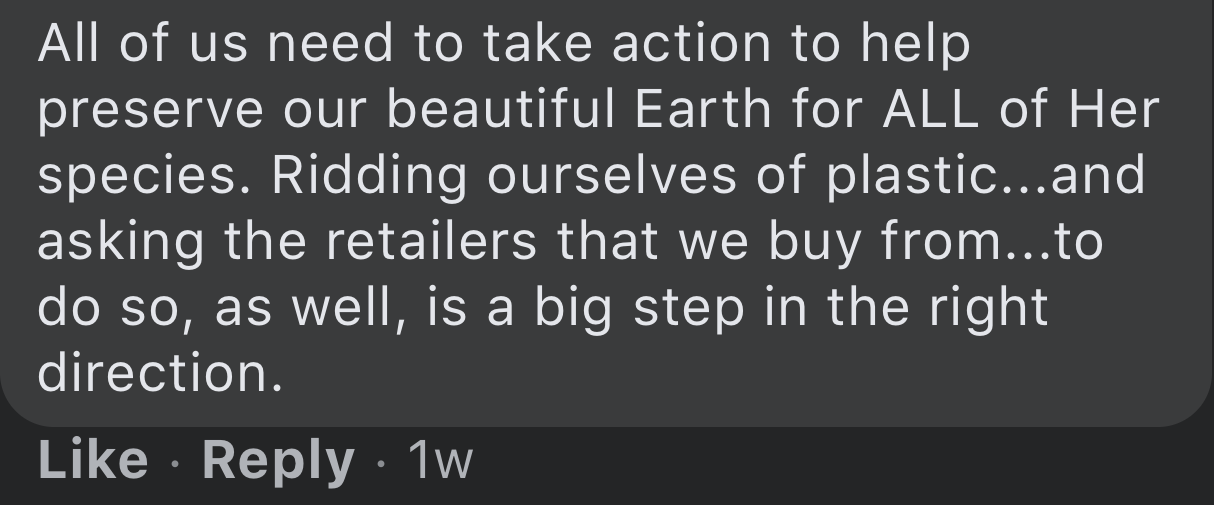
One consumer added, “I intend to shop at stores that are actively trying to reduce their plastic packaging. Whole Foods please take note! There are so many folks like me. Please do your part to preserve the planet!”.
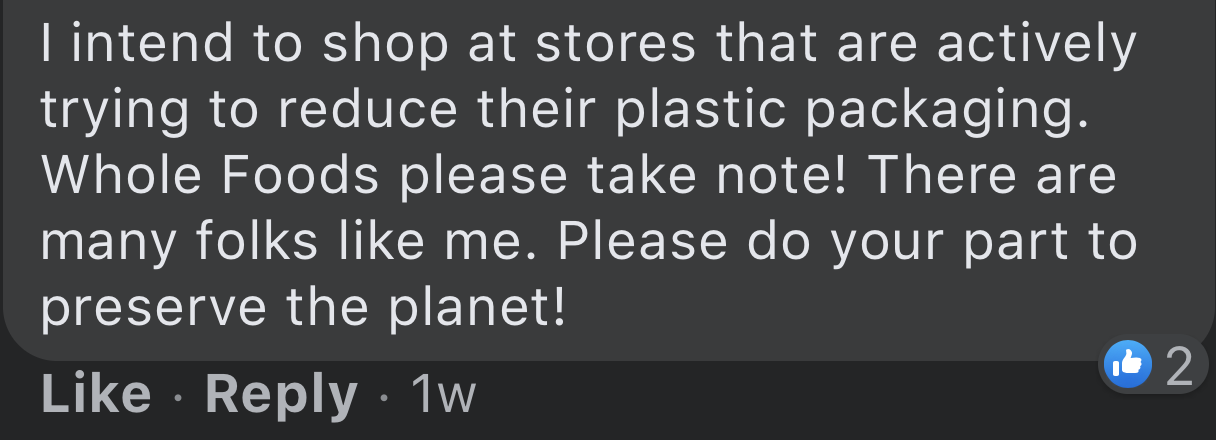
Maya Rommwatt, senior market campaigner at Defend Our Health, shared a similar sentiment: “I don’t remember asking for my cranberry sauce with a side of plastic. @WholeFoods it’s time to put #PlanetOverPlastic and stop selling #Thanksgiving food in unnecessary packaging”
Hundreds of other posts echoed the comments made by Halverson, Rossen, and Rommwatt. This week of action illustrated that social media is a powerful tool to organize community members from across the country and empower consumers to share their voice with the companies they shop at. It gives people a platform to tell corporations that they care about the health of the planet and want to see them take action to protect it. It’s a simple thing we can do that ultimately could make a huge impact: The more consumers who speak up about the problem of plastic packaging, the more likely it is that Whole Foods will make a change.
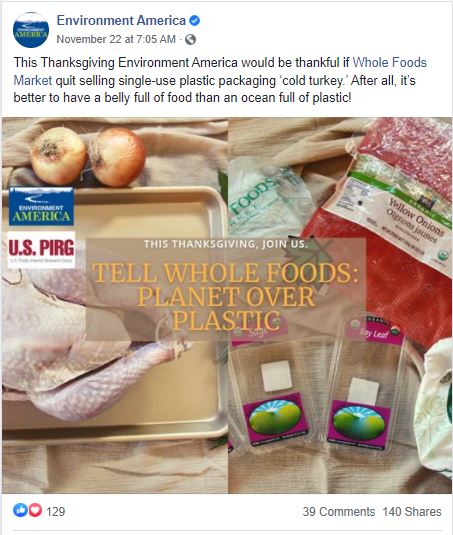
In addition to working towards more comprehensive plastics policies and producer responsibility laws, advocating for corporate-level action is an effective way to help address the plastics issue.
Next Thanksgiving, I’m hoping that grocery stores like Whole Foods will make it easier for consumers to have a plastic-free holiday. That’s something that I, our planet, and so many others would be thankful for.
Post on Facebook and Twitter telling Whole Foods to ditch plastics.
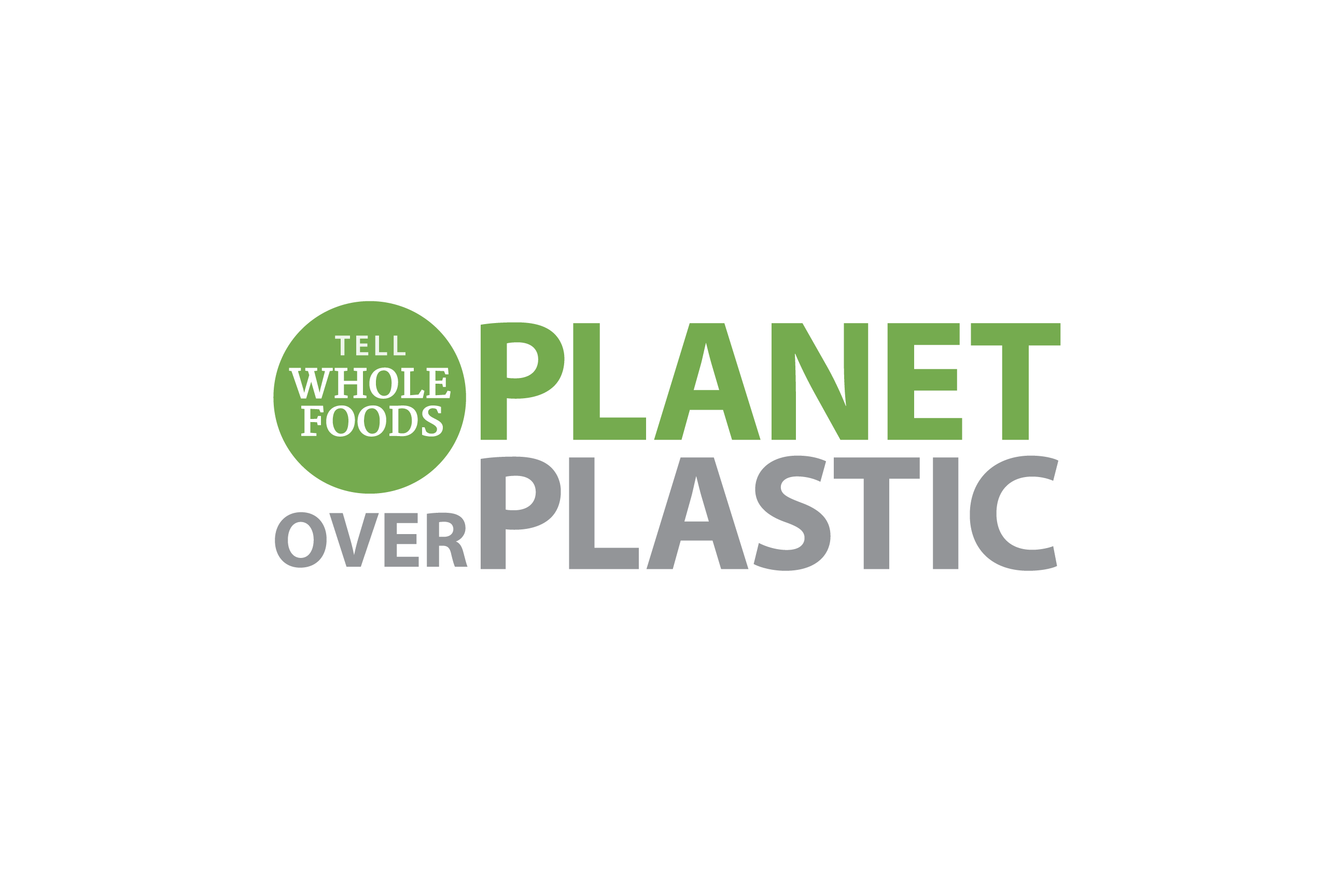
Tell Whole Foods: Planet over Plastic
Topics
Authors
Elizabeth DiSanto
Find Out More
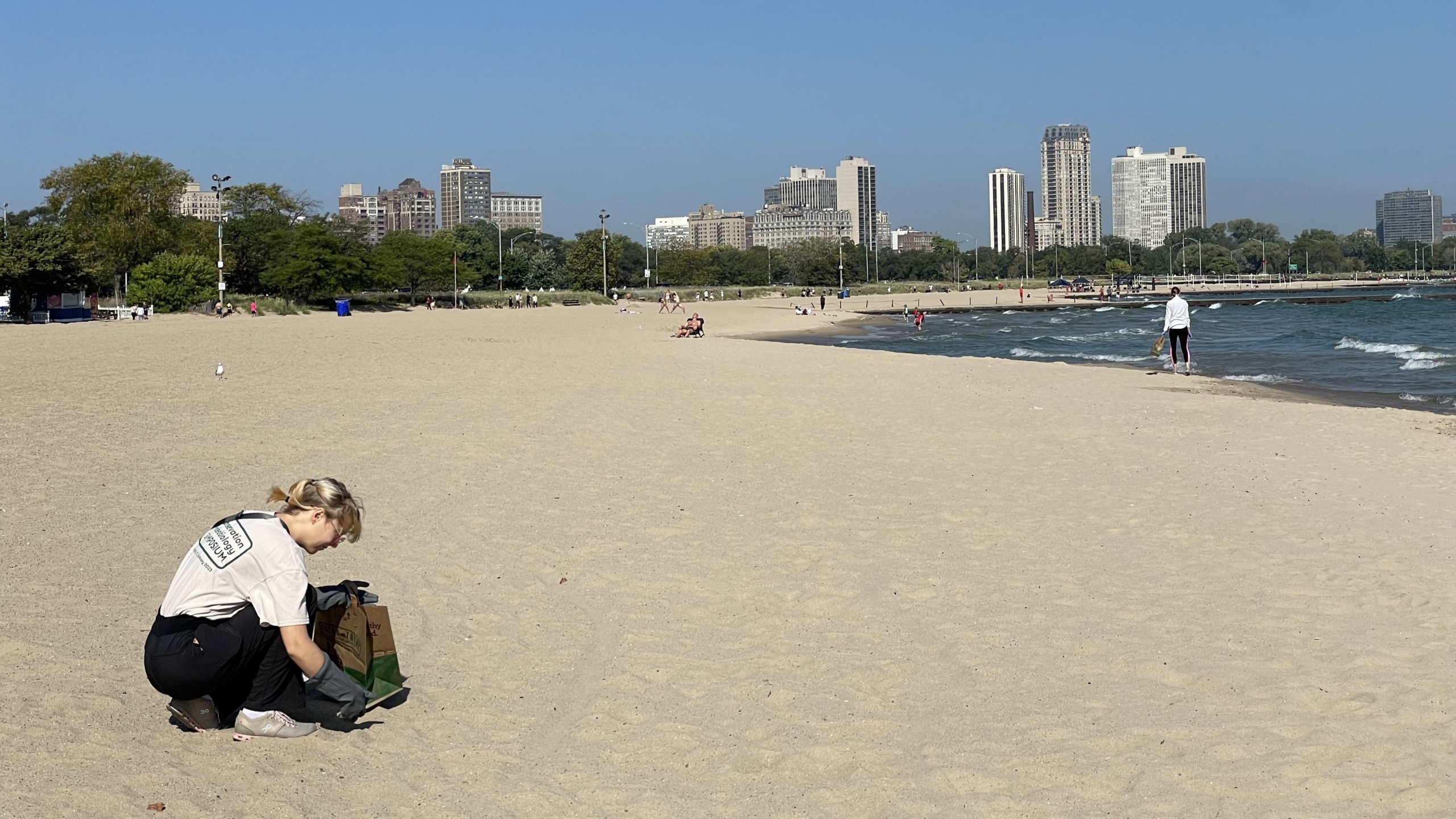
New report highlights the plastic pollution problem in the Great Lakes
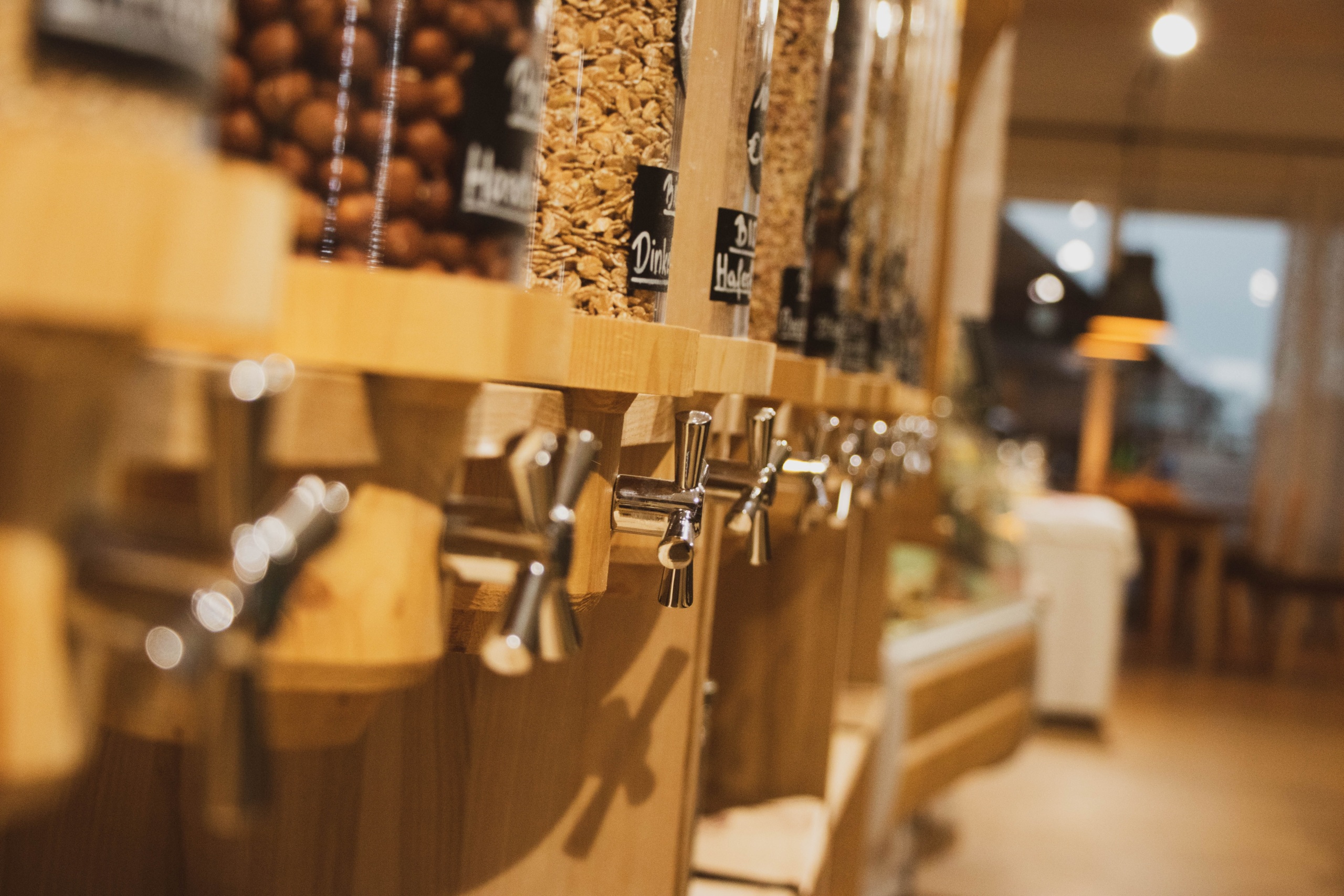
Ditch plastic packaging: Shop at your local refillery
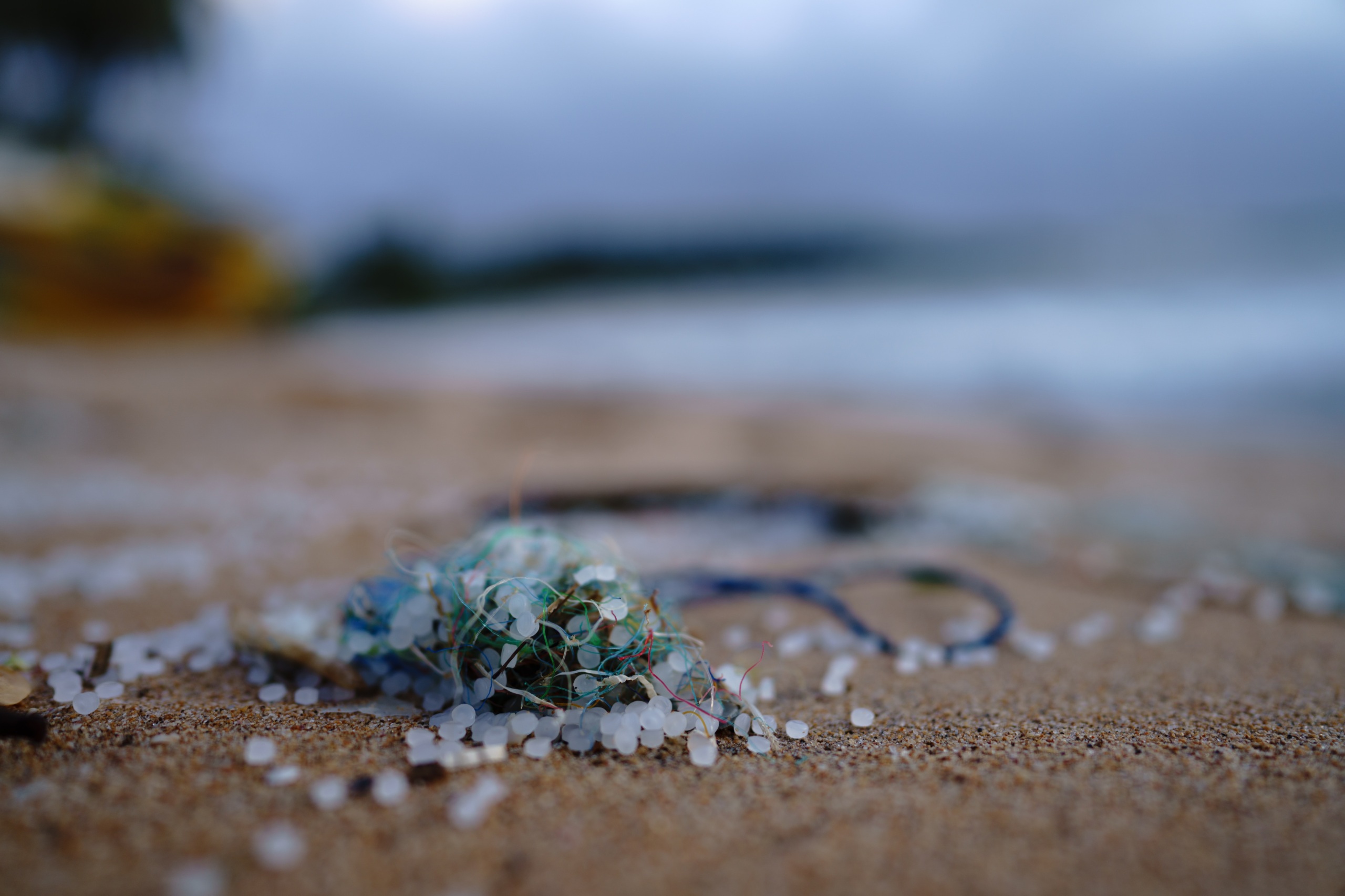
Millions of tiny plastic pellets are being dumped into our waterways
